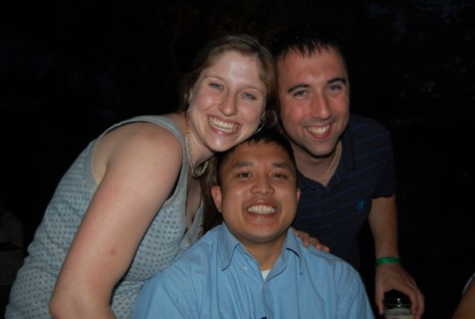UNH retracts energy drink ban after students speak out
Published Oct 18, 2011
Energy drinks are a staple in the lives of many college students, Sarah Rosser, a sophomore sports broadcasting major, said.
“College life is full of late night studying, and the only way a lot of students think they can cope with the late night hours are through energy drinks,” Rosser said.
The University of New Hampshire announced a ban on energy drinks sold at the school last month. Dining officials at the university also eliminated trans-fat from foods served in the cafeteria and took salt shakers off the tables.
UNH enacted the ban in order to become “the healthiest campus community in the country” by 2020, according to The Washington Post.
Rosser said she did not drink energy drinks when she was growing up, but she understood why many college students consumed them.
“When I was a kid, my parents were against me drinking a bunch of carbonated drinks, but even I had tried a couple of energy drinks in my college career,” Rosser said.
Selling energy drinks in the library and Union Grounds made the products even more accessible and tempting to students in the late study hours, she said.
Within hours of UNH officials’ announcement, students took to social media sites such as Facebook and Twitter to protest and post their opinions on the ban.
Shortly after, UNH President Mark W. Huddleston stopped initial plans to eliminate energy drinks on the campus by January.
According to Medscape Medical News, energy drinks can surpass the federal caffeine regulations set on sodas because they are categorized as nutritional supplements.
The U.S. Food and Drug Administration (FDA) allows sodas to have a maximum of 71 mg of caffeine per 12 fluid ounces.
Energy drinks can contain as much as 75 to 400 mg of caffeine in each can.
Medscape Medical News reported that 46 percent of the 5,448 caffeine overdoses in 2007 occurred in young adults and adolescents 19 years old and younger.
Rosser said the main reason why she is not a fan of energy drinks is the taste of the drinks, rather than the health risks.
Jaren Lorenz, a sophomore music major, said he felt energy drinks were no different than coffee.
“I personally have never been a fan of energy drinks, but I do see the benefits for college students,” Lorenz said. “All it is a way to keep students up and keep them going through the day.” Rosser said she thought that although many students consume energy drinks, they would survive if the university banned them from campus.
“They may complain about it at first because if they wanted one they would have to look elsewhere, but eventually they would get over it,” Rosser said.



